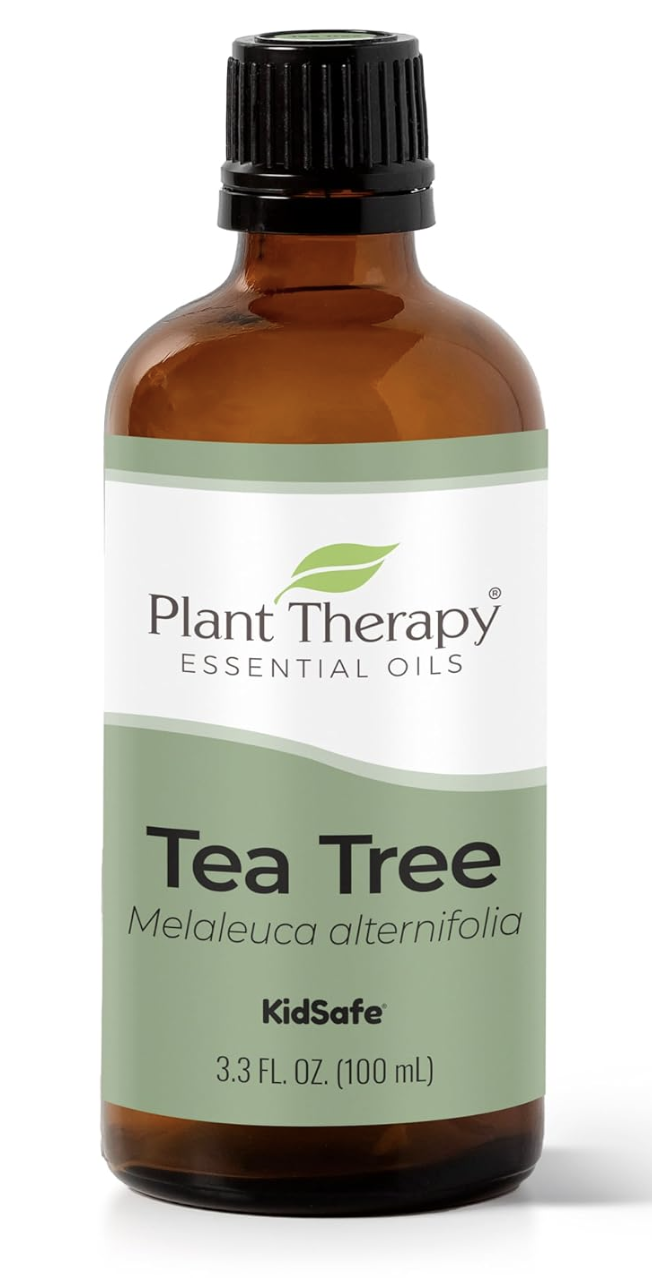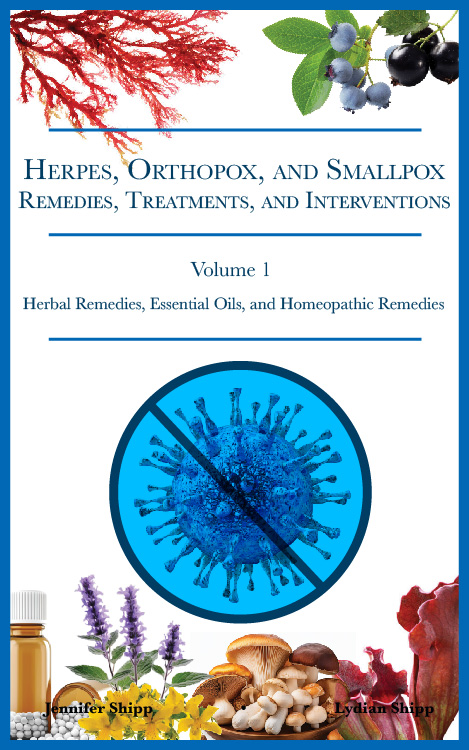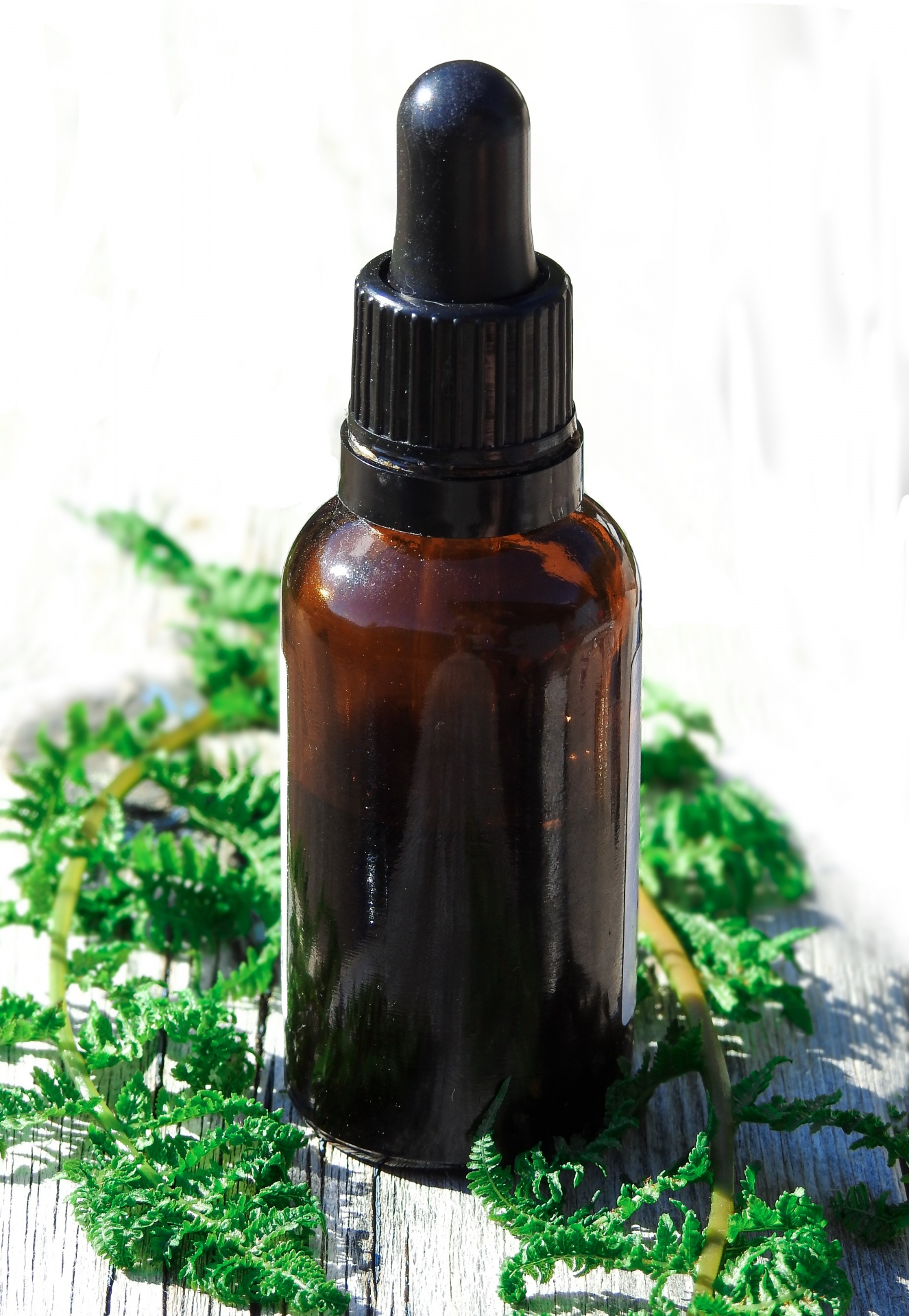Antiviral Essential Oil Treatments for Human Herpesvirus Infections
Chamomile (Matricaria recutita) Essential Oil
In in vitro studies, chamomile essential oil has shown a high selectivity index, meaning that it’s highly unlikely to be toxic to healthy human cells, but also demonstrates significant antiviral activity. Chamomile essential oil’s main mechanism of action is virucidal, meaning in this case that it can directly target and kill HSV (and some other viruses) before the virus infects host cells. It has been shown to have potential as a virucidal topical treatment option for herpes genitalis. Some research also suggests that chamomile essential oil may be especially valuable for the treatment of acyclovir-resistant HSV strains. Buy German Chamomile essential oil here.
Buy German Chamomile essential oil here.
Sandalwood (Santalum album) Essential Oil
According to one in vitro study, sandalwood essential oil has antiviral activity against both HSV-1 and HSV-2. When sandalwood oil was introduced to either of these 2 viruses, researchers found that viral replication was inhibited (although this oil was not found to be virucidal, and did not actively kill the virus). According to this study, sandalwood was somewhat more effective against HSV-1, and the efficacy of viral replication prevention was diminished in cases of higher multiplicity of herpesvirus infection. Click here to buy sandalwood essential oil.
Click here to buy sandalwood essential oil.
Tea Tree (Melaleuca alternifolia) Essential Oil for Herpes Labialis, HSV-1, and HSV-2
Topical application of tea tree essential oil has been found to be effective as a treatment for recurrent Herpes labialis. Other research suggests that tea tree essential oil may combine well with peppermint essential oil and manuka oil for the topical treatment of herpes outbreaks. Tea tree essential oil has also been found to be effective against MRSA when administered at a 4-5% concentration as part of a nasal ointment and body wash; this is relevant since MRSA also can cause painful skin lesions, similar to those seen in some cases of herpes infection.Tea tree essential oil has shown potent virucidal effects against the HSV virus in vitro. Like many of the other essential oils discussed here, tea tree oil works to eradicate HSV by killing extracellular herpes virus particles before they infect healthy host cells. Researchers have also found that, although the whole oil is quite effective as a virucidal agent, certain isolated compounds in tea tree essential oil (terpinen-4-ol, alpha-terpineol, and 1,8-cineole, to be specific) are slightly more effective in vitro when administered on their own.
One human study done on a group of patients between the ages of 18-70 with recurrent herpes labialis found that tea tree essential oil was effective in managing herpes lesion outbreaks. The study participants received either a water-based gel containing 6% tea tree essential oil or a placebo gel, and were asked to apply the gel 5 times per day as soon as possible after an outbreak. The study found that the patients who received the tea tree essential oil gel healed more quickly from outbreaks, and the virus seemed to “disappear” from PCR test results more quickly than in the placebo group.

Click here to buy Tea Tree Essential Oil.
Peppermint (Mentha piperita) Essential Oil
Peppermint essential oil has been found to act as a virucide against both HSV-1 and HSV-2, and even has action against one acyclovir-resistant strain of HSV-1 according to viral suspension tests. Essential oil from Mentha piperita can inhibit HSV-1 plaque formation by up to 82%, and HSV-2 plaque formation by up to 92% when administered at a noncytotoxic dose. Higher doses reliably produced a 90% inhibition of plaque formation for both types of herpesvirus. Plaque formation was inhibited by up to 99% in the acyclovir-resistant strain of HSV-1 mentioned previously. In all cases, peppermint essential oil was found to kill the herpes virus before its entry into a host cell (the oil did not kill HSV after host cell infection); in this context, peppermint was shown to have up to a 99% efficacy in killing HSV-1 and HSV-2 prior to viral entry into host cells.As mentioned above, peppermint essential oil has been previously combined with tea tree essential oil and manuka oil to create a topical treatment for herpes outbreaks. Any one or all of these oils can be combined with a carrier oil like coconut oil to create a topical treatment lotion for herpes outbreaks. Although all of these are technically safe to apply anywhere on the body, use extra care if you use these oil combinations on the genitals to avoid accidentally putting these inside any orifices (only apply these oils externally to the genital area).
 Buy peppermint essential oil here.
Buy peppermint essential oil here.
Ginger (Zingiber officinale) Essential Oil
Ginger essential oil contains various important medicinal compounds, including zingiberene, a monocyclic sesquiterpene that makes up 30-35% of ginger essential oil. While zingiberene makes up the main part of ginger essential oil, herbal medicines, including essential oils, work largely through the intermingling of many different compounds (including even the most minor constituents). Whole ginger essential oil has been found to be effective as a treatment for herpes lesions through its ability to disrupt and destroy the herpesvirus envelope and other viral structures that promote the entry of the virus into healthy host cells. Note, however, that ginger essential oil does not prevent viral absorption or replication.Caprine alphaherpesvirus 1 is a type of herpes found in goats, but is sometimes used in studies as an animal model for HSV-2, the human herpesvirus most often implicated in the development of genital herpes lesions. Studies have found that ginger essential oil causes disruption of the viral envelope and other viral structures specifically in alphaherpesviruses like Caprine alphaherpesvirus 1 (CpHV-1); ginger essential oil can act as a virucide to inactivate the CpHV-1 virus by up to 100%.
 Buy ginger essential oil here.
Buy ginger essential oil here.
Other research has found that ginger essential oil can inhibit HSV-2 plaque formation by up to 90% and significantly inhibit the infectivity of the virus in RC-37 cells. Before healthy cells are infected, ginger essential oil can act as a virucide that prevents viral entry into host cells by interfering with virion envelope structures or by masking viral compounds required for entry and absorption into host cells.
In other research, ginger essential oil has also been found to be effective as an antiviral treatment for not only HSV, but also for Influenza-A, Chikungunya, Dengue, HRSV, Polio, SARS-CoV-2, enterovirus, and rhinovirus. Click here to read more about ginger as a treatment for viral infections (and other health problems) in children, and click here to learn about the use of ginger and ginger essential oil as an antiviral medicine that can be used during pregnancy (and beyond).

Click here to learn more about the DreamLight.app, a guided meditation and brain-entrainment tool.
Star Anise (Illicium verum) Essential Oil
IMPORTANT NOTE: There are 2 kinds of anise: anise/aniseed and star anise. Here, I’m discussing STAR anise, otherwise known as Illicium verum. This plant is completely different from aniseed, or Pimpinella anisum. Both have medicinal benefits, but here I’m only talking about the essential oil from Illicium verum. Star anise essential oil may inhibit HSV-2 plaque formation. It has also been shown to act as a virucide targeting HSV before host cell infection, including in cases of acyclovir-resistant HSV-1. In in vitro studies, star anise has been found to reduce viral infectivity of HSV by up to 99% by inactivating free virus particles prior to host cell entry. Antheole is the primary constituent in star anise essential oil thought to be responsible for the oil’s antiviral actions.Star anise essential oil may be applied externally directly to herpes lesions, or taken internally in small doses. To take star anise essential oil internally for the treatment of viral infections, put a few drops of pure essential oil in a glycerin capsule each day. The recommended dose is 300 mg per day of star anise essential oil for the treatment and prevention of viral infections like herpes; 1 drop contains approximately 60 mg. As such, people wanting to treat herpes using this essential oil as part of their treatment protocol can take up to 5 drops of star anise essential oil per day. Start with a low dose of 1-2 drops and gradually work your way up to taking 5 drops per day (contained in a glycerin capsule).
Click here to read about how to use star anise essential oil as a treatment for COVID-19 and other coronaviruses, influenza, and other viral respiratory infections. Star anise essential oil also has antiviral action against the dengue virus.
 Buy star anise essential oil here.
Buy star anise essential oil here.
Other Essential Oils for Herpes Treatment
Other essential oils that have been found to have antiviral effects against HSV-1 and HSV-2 include these:- Thyme (Thymus vulgaris) essential oil - Thyme essential oil may inhibit HSV-2 plaque formation
- Hyssop (Hyssopus officinalis) essential oil - Hyssop essential oil may inhibit HSV-2 plaque formation
- Citronella (Cymbopogon nardus) essential oil - Citronella essential oil can inhibit HSV-1 viral replication.
- Lemon Balm (Melissa officinalis) essential oil - Lemon balm essential oil has been found to inhibit viral replication of HSV-2.
- Eucalyptus essential oil - Eucalyptus essential oil has some antiviral activity against HSV-1 and HSV-2.
- Dwarf Lavender Cotton (Santolina insularis) essential oil - Essential oil from Santolina insularis has been found to have antiviral activity against both HSV-1 and HSV-2 in in vitro studies.
- Dwarf Pine (Pinus mugo) essential oil - Dwarf pine essential oil may inhibit plaque formation by up to 95%, and also act as a virucide against both HSV-1 and HSV-2. It has potential as a treatment for acyclovir-resistant HSV-1.
- Lemon (Citrus lemon) essential oil - Lemon essential oil also inhibits plaque formation and acts as a virucide against HSV-1 and HSV-2.

Click here to schedule a health coaching call with us.
How to Administer Essential Oils for Herpes Treatment
One primary method for using essential oils to treat HSV infections is by applying them topically to lesions on the skin. For this method of application, the essential oil(s) should be diluted appropriately with a carrier oil. Preferably, the carrier oil should be grapeseed oil, apricot kernel oil, or rosehip oil; grapeseed and apricot kernel oils both contain vitamin B17, a compound that is especially valuable for treating cancer, but also for autoimmune diseases and other immune problems, while rosehip oil has the advantage of being highly non-comedogenic and very gentle on all areas of the skin. Coconut oil is also a good choice of carrier oil.Dilute the essential oil of your choosing at a ratio of 5-10 drops of essential oil to 1 tablespoon of carrier oil. If you have especially sensitive skin, use 3-5 drops of essential oil at first and increase the dose gradually if your skin tolerates the oils you choose well.
 Herpes, Orthopox, and Smallpox Remedies, Treatments, and Interventions - Volume 1 - Buy here!
Herpes, Orthopox, and Smallpox Remedies, Treatments, and Interventions - Volume 1 - Buy here!
Interested in learning more about essential oils and other medicinal oil treatments for herpes? Check our our Living Database to find links to scientific studies, dosing information, and anecdotal information about how to treat 500+ health problems using essential oils and other medicinal oils!
Click here to learn more and subscribe to the Living Database now.
Resources:










